Are Alstroemeria Plants and Flowers Poisonous to Cats?
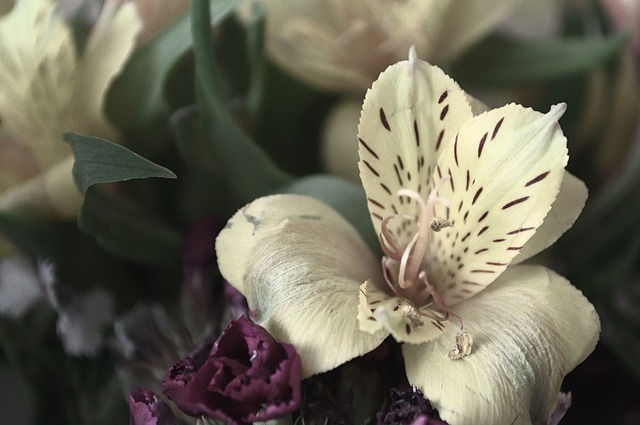
Tired of constantly worrying about whether those innocent-looking flowers could potentially wreak havoc on your furry friend?
Worried sick that your curious cat may unknowingly stumble upon a toxic botanical trap? 😺
I hear ya, my friend.
It's enough to make any cat owner's heart race and stomach churn.
But fear not!
Take a deep breath and let's explore the truth about alstroemeria and its relationship to our beloved feline companions.
Together, we'll uncover the answer and put those worries to rest.
Let's dive in, shall we?
Why Is Alstroemeria Toxic to Cats?
Alstroemeria, or Peruvian lily, is harmful to cats due to the presence of tulipalin A. This compound is toxic and can cause vomiting, diarrhea, and abdominal pain if ingested. All parts of the plant, including the stem, leaves, and petals, contain these harmful compounds.
Alstroemeria, also known as Peruvian lily, is poisonous to cats. 😿
Let me lay it out for you:
The problem lies in a compound called tulipalin A, which is present in alstroemeria.
Tulipalin A is toxic to cats, causing unpleasant effects.
If your cat nibbles on this pesky Peruvian flower, be ready for troubles such as vomiting, diarrhea, and abdominal pain.
Not fun at all!
You might notice a common theme here...
Each part of the alstroemeria plant contains these harmful compounds be the stem, leaves, or even the petals.
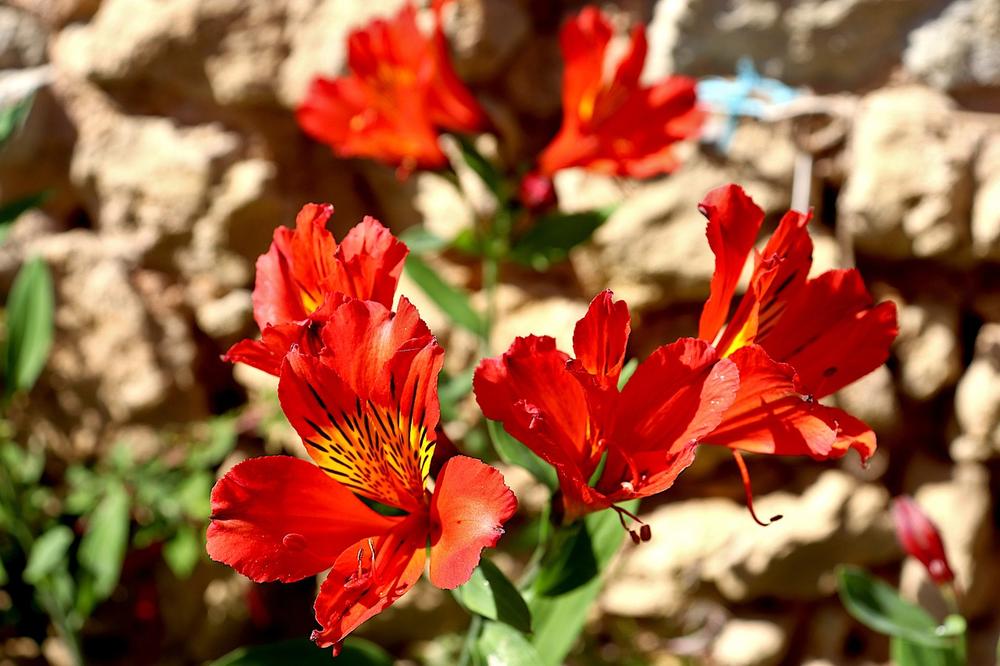
It's like an evil botanical cocktail specifically made to mess with cats.
To sum up:
Keep alstroemeria out of their curious little mouths...
Don't take chances for the sake of a pretty bouquet.
Well, well, well...
That's enough about toxic flowers for now.
Remember, cats can be finicky eaters.
Stick to what you know is safe for your fabulous feline friend - they'll thank you later!
Main points I'll expand upon further down this article:
- Many common houseplants are toxic to cats, so it's important to identify and avoid them.
- Alstroemeria plants are mildly toxic to cats and should be kept out of their reach.
- Plant alstroemerias in the spring and space them 60 cm apart to prevent issues.
- Avoid bringing alstroemeria inside if there are cats at home.
- Do not attempt to induce vomiting at home, seek veterinary care if necessary.
- Removing poisonous plants from the house is crucial for cat safety.
- Ingesting alstroemeria can cause mouth sores, vomiting, upset stomach, and skin rash.
- Even small amounts of alstroemeria can cause serious skin and stomach irritation.
- Immediate veterinary attention is necessary if a cat ingests poisonous lilies.
- Cat-friendly alternatives to alstroemeria include gerbera daisies and orchids.
And let me tell you, keeping your feline friends away from alstroemeria is just the beginning!
There are several other steps you can take to ensure their safety and prevent any accidental ingestion...
Cats and Alstroemeria: Ingestion Concerns and Safety Measures
When it comes to cats and alstroemeria, there are some concerns and safety measures you should bear in mind:
- Keep alstroemeria plants out of reach: Cats should stay away from toxic plants, and alstroemeria is one of them.
- Space alstroemerias apart: When planting these flowers, make sure to give them enough space, around 60 cm, to minimize risks for your feline friends.
- Avoid bringing alstroemeria inside if you have cats at home: It's best to keep these plants out of their reach altogether.
- Remove poisonous plants from your house: This includes alstroemeria and any other dangerous plants, to prevent accidental ingestion by curious cats.
- Watch out for symptoms: Ingesting alstroemeria can cause mouth sores, vomiting, upset stomach, and skin rash. If you notice any of these signs, seek immediate veterinary attention.
- Consider cat-friendly alternatives: While alstroemeria itself is not toxic to cats, opting for non-toxic options like gerbera daisies or orchids can provide a safer environment for your furry friends.
Keeping your cats safe and preventing ingestion of alstroemeria is essential for their well-being. 😺
And speaking of keeping your cats safe, I wanted to share an important guide with you.
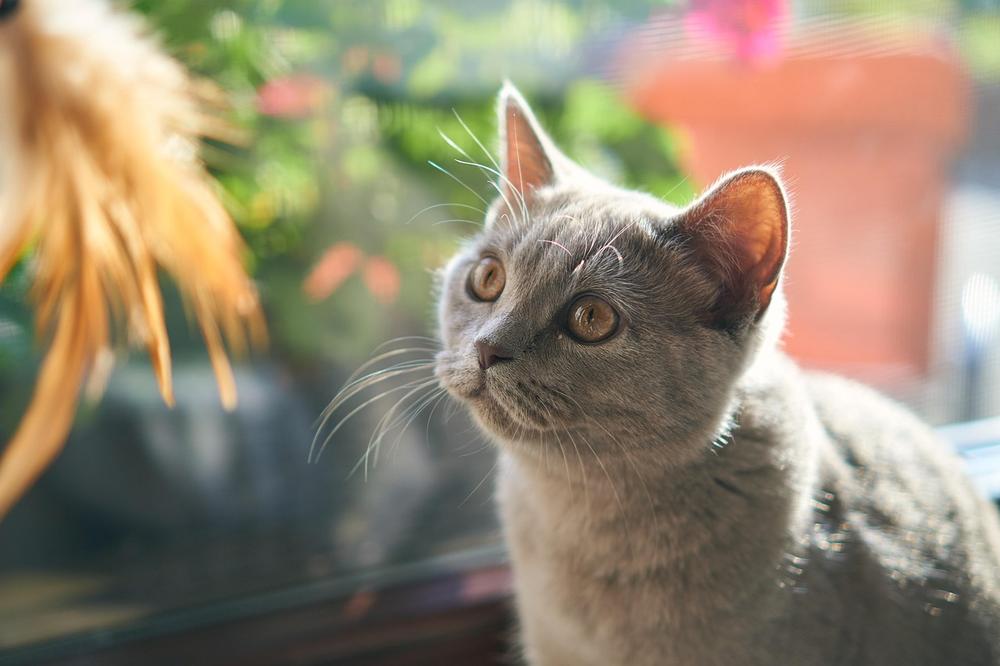
I've written a blog post that covers the safety of fittonia plants for cats.
As a cat owner, I understand how concerned and cautious you may be, so I highly recommend checking out Is Fittonia Toxic to Cats.
It will provide you with all the information you need to ensure the well-being of your furry friends.
What Are the Symptoms of Alstroemeria Poisoning?
Alstroemeria poisoning in cats is a serious matter.
Here are some symptoms to watch out for:
- Vomiting - this is one of the most common signs that your cat has ingested alstroemeria.
- Diarrhea - along with vomiting, diarrhea can occur and may be associated with the ingestion of alstroemeria.
- Drooling - excessive drooling can also be a sign that your cat has been exposed to this poisonous plant.
- Lethargy - if your cat is unusually tired or lacks energy, it could be a symptom of alstroemeria poisoning.
- Tremors - shaking or trembling can occur as a result of exposure to alstroemeria.
You need to take immediate action if you suspect your cat has eaten alstroemeria.
Contacting a veterinarian or emergency animal hospital is essential.
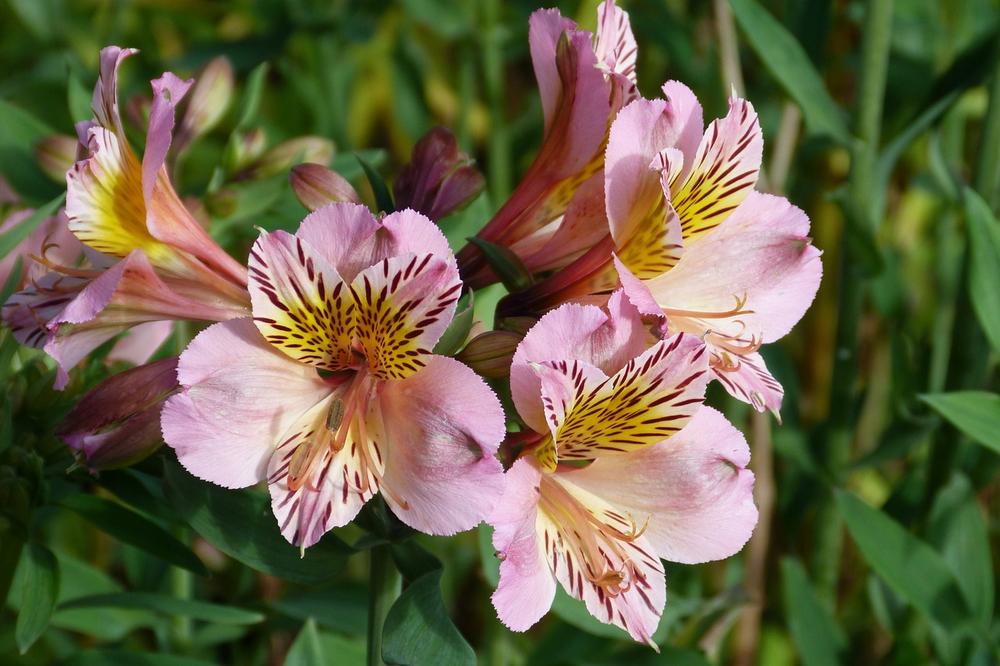
Bear in mind that symptoms may not show up right away. They can take 1 or 2 days to appear.
Unfortunately, even with aggressive medical treatment, many cats do not survive beyond 2 to 3 days after ingesting alstroemeria.
So don't delay in seeking help if you suspect alstroemeria poisoning in your furry friend.
Note: If you're concerned about the polka dot plant and its potential toxicity to cats, I can help. Check out Is Polka Dot Plant Toxic to Cats to find out how to keep your feline friends safe.
But before you start sharing these beautiful flowers with your furry friend, let's explore more about alstroemeria plants and their fascinating characteristics!
What Is Alstroemeria?
| Information | Description |
|---|---|
| Alstroemeria toxicity to cats | Alstroemeria flowers are considered mildly toxic to cats. Ingesting these flowers can cause gastrointestinal upset, such as vomiting or diarrhea. Although not highly toxic, it is still advisable to keep them out of reach of curious cats. |
| Common symptoms | If a cat ingests alstroemeria, common symptoms may include drooling, loss of appetite, lethargy, or mild gastrointestinal issues. It is important to monitor your cat's behavior and consult a veterinarian if any concerning symptoms arise. |
| Precautions for cat owners | If you have cats and want to have alstroemeria in your home or garden, consider keeping them in a location where your cats cannot access them. Alternatively, select cat-safe plants for a worry-free environment. |
| Other potential hazards for cats | Apart from alstroemeria, there are various other plants that can be toxic to cats. Some common examples include lilies (true lilies), azaleas, tulips, daffodils, and certain types of ferns. Familiarize yourself with these plants to ensure your cat's safety. |
Alstroemeria, also known as Peruvian lilies or Alstroemeria aurea, are beautiful ornamental plants from South America.
Unlike true lilies, alstroemeria needs plenty of sunlight and well-drained soil to grow and bloom their best. So make sure you find a sunny spot for these beauties in your garden.
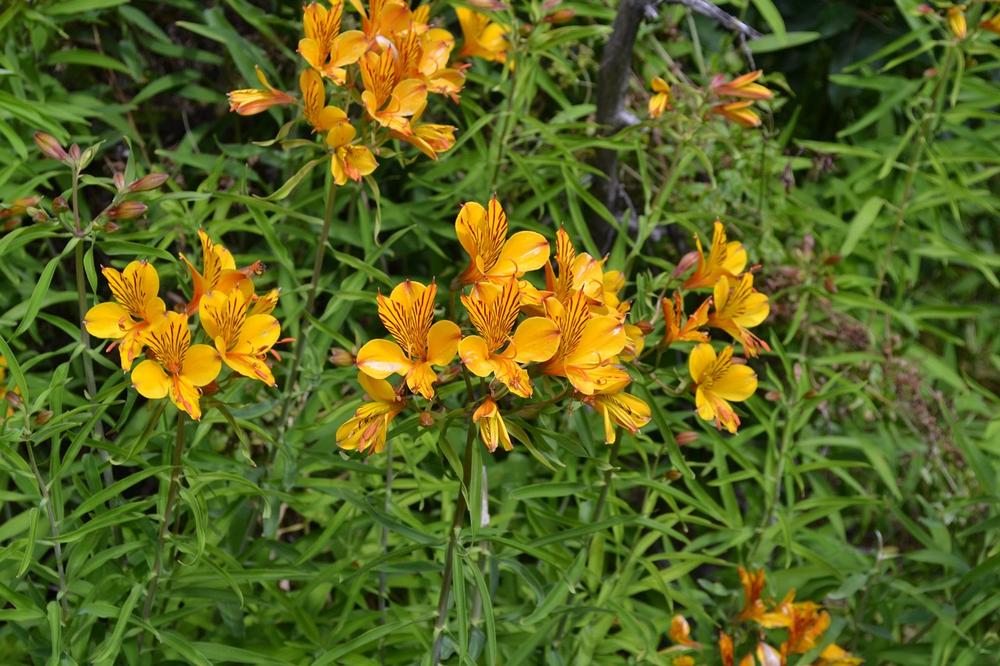
These perennials with tuberous roots can grow to be anywhere from one to three feet tall, so they'll definitely add some height and elegance to your landscape.
And let's not forget about the stunning colors. Alstroemeria comes in a wide variety of shades, so you have plenty of options to choose from.
In fact, alstroemeria is often given as a symbolic gift representing friendship or romance. They're just lovely flowers to give to someone special.
If you happen to have alstroemeria in your garden, you might notice that they spread quite easily. That's why it's common for gardeners to share their alstroemeria tubers with friends.
Are Lilies Poisonous to Cats?
Are lilies bad for cats?
Yes, they are.
You really need to be careful about this.
Some important things you should know:
- Lilies like Tiger lilies and Easter lilies are super dangerous for cats. If they eat them, it can totally ruin their kidneys forever.
- Even the water from a vase with an Easter Lily can harm your cat. So keep those flowers far away.
- To recognize a true lily, look for its Latin name that starts with "Liliaceae." If you see that, keep it away from your cat.
- The Daylily family is also off-limits for cats because it's toxic.
- It's not only true lilies that can be risky. Flowers with "rose" in their name can also be harmful. Stick to normal roses from the Rosacea family.
Ensuring the safety and wellbeing of your cat is possible through being conscious of these hazards.
And now, let's shift our focus to another popular flower - the alstroemeria - and its interaction with cats...
Methods for Preventing Cats from Approaching Alstroemeria
To keep cats away from your alstroemeria, here's what you can do:
- Put your alstroemeria up high so those nimble kitties can't reach it. Install some shelves or hanging baskets to create a safe spot for your plants.
- Cats hate walking on uneven ground, so scatter some pebbles around the alstroemeria. It not only deters the felines but also adds a nice touch to your garden.
- Use scents that cats don't appreciate, like oranges or rosemary. You can place orange peels or sprigs of rosemary near your alstroemeria to make them think twice about getting too close.
- Give those sneaky nibblers something else to munch on. Set out cat-friendly plants like catnip or grass as a distraction. By offering an alternative snack, they'll be less tempted to chomp on your precious alstroemeria.
- When it comes to bouquets, choose ones with just alstroemeria or other non-toxic flowers. That way, if your furry friends manage to sneak inside, there won't be any poisonous blooms within their reach.
With these simple tips, you can delight in the beauty of alstroemeria without worrying about mischievous cats causing any damage.
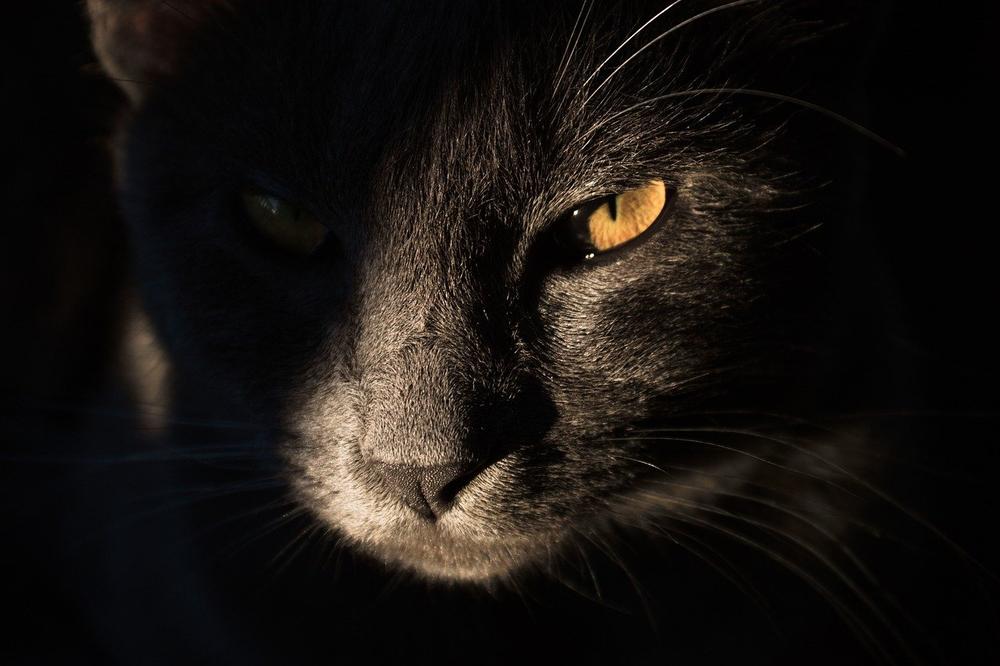
It's a win-win situation - happy cats and safe alstroemeria for all!
And that wraps up today's article.
If you wish to read more of my useful articles, I recommend you check out some of these: Are Stink Bugs Poisonous to Cats, Is Orange Essential Oil Safe for Cats, Is Prayer Plant Toxic to Cats, Yellow Cat Poop, and Do Newborn Kittens Need Blankets
Talk soon,
-Sarah Davis